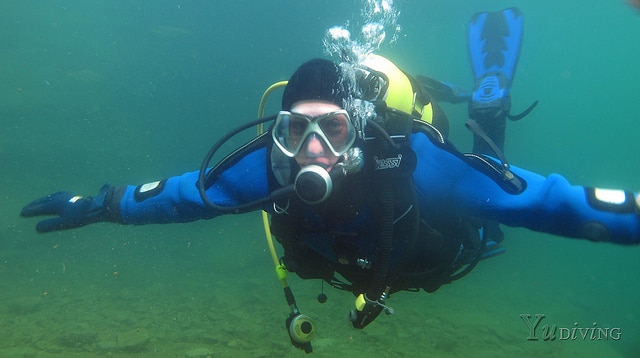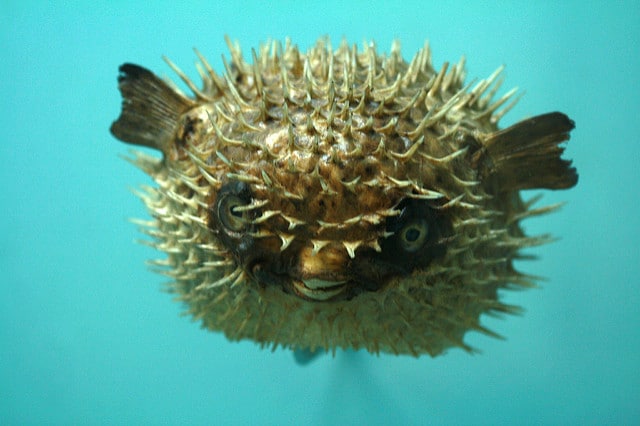If you are a new diver, welcome to the wonderful world of scuba diving. I hope you have had a chance to read our Beginners Guide to Scuba Diving. The guide has many useful hints and tips to get the most out of your scuba diving. Completing your Open Water Diver Certification is a meaningful experience. If you are not already certified, you have a wonderful experience to look forward to.
Every experience diver you meet will have tips for new divers. Some will be beneficial, while others may be old wives tales or items out of date with current diving practices. Here is my take on five things that a new diver should be aware of.
Certified does not mean you are qualified
I am not trying to take away from your accomplishment of becoming a certified diver. For many of you, it would have been a milestone that might have taken years of dreaming before you were able to become certified. My point is that getting your certification does not make you an expert diver. The major training agencies all train to the same international standard. Here is the summary for the international standard for a scuba diver level 2, which is an Open Water Diver.
“EN 14153-2/ ISO 24801-2 Recreational diving services – Safety related minimum competence requirements for the training of recreational scuba divers – Part 2: The level 2 “Autonomous diver” has sufficient knowledge, skill and experience to make dives, in open water, which do not require in-water decompression stops, to a recommended maximum depth of 20 m with other scuba divers of the same level, only when appropriate support is available at the surface, and under conditions that are equal or better than the conditions where they were trained without supervision of a scuba instructor, unless they have additional training or are accompanied by a dive lead.”
While the standard does go into more detail than the summary on what each of these requirements is, the primary point is that the standard applies to the course material. When you enter in the human factor, individual performance and interpretation factors must be considered. The quality of the instruction you receive will vary between different instructors. Over the last few years, most of my diving has been done from dive centers located in the Philippines. Among new divers, those that were certified in Thailand seem less prepared than those certified elsewhere. I have heard many dive professionals refer to Thailand dive centers as “diploma mills”. They rush you through the steps but not really train you well. Of course, not every training center in Thailand is like that, however, I have seen enough to say that it does happen.
One website that I read frequently, Cave Diver Harry, has an article that talks about a similar line about certifications. I think the whole issue is summed up well by a term on his site Mc Certification. There is a checklist for instructors to produced “qualified” divers, but the quality control is with the instructor. In many cases, new divers have no way to gauge if he received proper training. Also, some items such as buoyancy control, are hard to measure. If you know enough about your BCD to operate it, the other concerns of buoyancy control do not address. The primary point is that as a new diver, you cannot judge if you were properly trained.
According to the standard, an Open Water Diver is capable of diving along with a dive buddy without anyone else around. Think about that for a minute! How much time do you really have underwater? And more importantly, how much time do you have underwater, doing something other than kneeling on the bottom or doing skills? An hour or so? Can anyone really believe that you and a dive buddy are trained to the point you can go off alone?
In my view, a new diver should have at least a dozen dives under the supervision of a dive professional before diving just with a dive buddy of equal qualification. This could be with an in water guide looking over a group of divers. Many tropical resorts that get many new divers and once a year divers already have an in-water guide policy. After those additional dives, another dozen dives with other dive teams nearby plus a navigation course before considering diving on your own. When you do start diving on your own, make sure it is not a new dive site for you until you have gained even more experience. Some experienced divers suggest that divers should not dive alone in a buddy pair until they have both become rescue divers. I do not fully agree with that, but do think that experience is needed.

Buoyancy is King
Buoyancy control, including trim and form, is what separates the average diver from the expert diver. It has a great impact on our diving. When we have obtained a degree of mastery of these items, our diving will improve in many ways. We will be more relaxed in the water and more efficient in our movements both leading to better air consumption. The better control allows us to effortlessly avoid damage to our surrounding and possibly to ourselves. I have seen divers lose control and crashed into a reef or wreck receiving cuts and bruises. In our Beginners Guide to Scuba Diving, there is a chapter on the principals of buoyancy control and another one on trim and form. Review those articles and the information in your manuals to refresh your book knowledge. Then practice a few minutes on each dive. My Aqwary dive computer has a game and you can do something similar in your dives. When you start the app, it will give you a depth near the one you are at. You go to that depth and it starts a timer. Your goal is to maintain the depth for the amount of time specified. When you complete the exercise, the app gives you a score. If your score is high enough it allows you to repeat the level or go to the next. As you go up in levels, the tolerance becomes smaller. You can do something similar with your dives and use your dive computer. In your dive plan, select one or two times were you will maintain hover for one to two minutes. After your dive, review your dive profile and see how well you did.
Do Not Rush
This does relate to the first one on many points. To me, too many divers rush for more certifications and believe that is all they need. This does not allow them to develop the skills needed to be a competent diver. The advanced diver with only 10 dives is not ready for a 100-foot dive. However, some dive certification agencies recommend open water students to immediately follow up with an advance course. They claim in their defense that the goal is not to create an advanced diver but one who has received advanced training. They stress that divers should always dive within their comfort level.
My special interest is wreck diving. I would say that the majority of my wreck dives are for advance or even deep divers. The locations I dive most frequently has many wrecks between 80 and 120 feet deep. When I am diving on vacation or just doing a truly fun dive, they are normally in less than 60 feet of water. I had 25 dives before I did my first deep dive. I was not disappointed in any of those early dives because I was not deep. I enjoyed my dives and improved my skills. When I was comfortable, then I took on the advance course. New Divers should take their time, developed their basic skills and explore what diving means to them.
New Divers Comfort Zone
You will hear all the legal talk about diving only within the range you were training for and only in the level of your skills. This is often referred to as your comfort zone. Of course, the only way to improve yourself is to push the edge of that zone. It needs to be done when you are ready and in small steps. When you are comfortable with what you are doing, then look for additional training if you are moving towards an area that requires training, such as deep dives and wreck penetration.
Remember this, only you can judge if you are comfortable moving forward into something new. Do not let others push you. If your dive buddy tells you not to worry about the dive because he is there, and that makes you feel better you might want to think very hard if you are ready. If the buddy is a dive instructor encouraging you, then maybe you might want to listen. However, if it is just another diver, you are placing your welfare in their hands. On the other hand, if you are ready to go, but your dive buddy thinks you are not ready, look at why they believe that. You might be letting your ego drive you or have an unrealistic viewpoint of your skills and performance.
Remember this golden rule: “Any Diver Can Cancel Any Dive For Any Reason.” I add to that, and without an explanation.

Never Harass Wildlife or Damage Reefs.
Yes, you may still see an experience diver, even an instructor, harass marine life but do not do it. There are a few good reasons to follow this rule. First, it is very stressful to the marine life. Also, they may feel cornered and strike out and protect themselves. It might seem like fun to you to see a puffer fish blow itself up but it is a defense mechanism for the fish. That moray ell you are tempting out of their hole might decide to sink his teeth into you.
Here is another reason. Most divers realize we have to protect our dive sites. Just our presence on a reef will have a negative impact on the reef and marine life. Divers harassing marine life can cause the marine life to flee. When we add in careless divers damaging a reef, the overall impact can be great. Divers going so far as removing items from a reef can destroy a reef in a short time. If you are a diver, taking something from a reef or in your carelessness breaks something, expect to upset many of the other divers. Some dive destinations such as the Galapagos Islands have strong laws in place. There, dive guides are licensed by the park authority. They have the responsibility of briefing the visitors on the rules and are required to report violations to the authorities. Violators will be heavily fined. New divers should accept this responsibility to the environment and our dive sites.
I am sure that every diver could add to this list, some with very a strong belief in a certain task. My final advice to new divers, you have learned a great deal but you have just begun to learn what the world of scuba diving has in store for you. Be comfortable in what you know and look forward to learning more and experiencing more.

